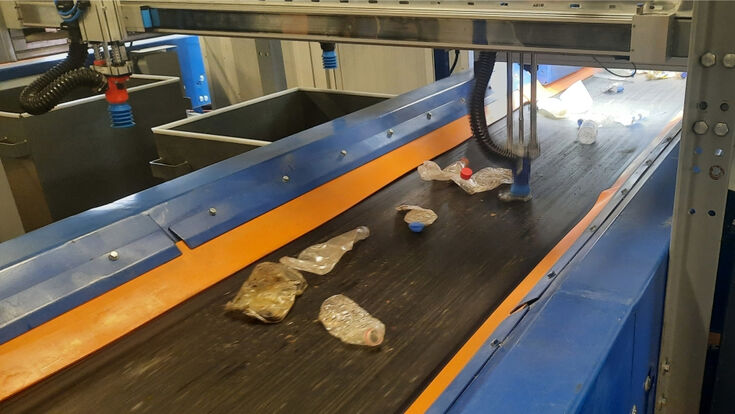Making Best Use Of Industrial Waste Water Treatment Performance with Reclaim Waste Melbourne
Making Best Use Of Industrial Waste Water Treatment Performance with Reclaim Waste Melbourne
Blog Article
Fostering Resource Performance and Environmental Management With Liquid Waste Elimination Programs
In the world of environmental stewardship, the monitoring of liquid waste stands as a critical time where resource performance and environmental management assemble. Liquid waste removal programs play a pivotal role in safeguarding our ecosystems and making certain lasting growth practices. By carefully attending to the disposal of liquid waste, neighborhoods and markets can not only reduce possible dangers yet also unlock chances for reusing and repurposing beneficial sources. As we navigate the complexities of waste monitoring in a rapidly advancing globe, the synergy between cutting-edge innovations, stringent guidelines, and forward-thinking strategies becomes progressively extremely important. Through a lens of aggressive engagement and tactical insight, the landscape of fluid waste monitoring unveils a tapestry of obstacles and possibilities that beckon us to check out the course in the direction of a greener and even more lasting future.
Importance of Fluid Waste Elimination
The value of fluid waste elimination exists in its vital duty in protecting ecological health and wellness and securing public wellness. Liquid waste, otherwise correctly managed, can pose serious threats to ecosystems, water resources, and human wellness. Via reliable elimination processes, damaging substances such as pathogens, pollutants, and chemicals are stopped from polluting the environment and creating detrimental results.
Appropriate fluid waste removal additionally assists in avoiding the spread of conditions and minimizing the potential for groundwater contamination. By securely dealing with fluid waste, the danger of waterborne illnesses and pollution-related health and wellness issues is dramatically lessened - Reclaim Waste Melbourne. In addition, reliable removal methods contribute to preserving the general sanitation and looks of communities, therefore enhancing the lifestyle for residents
Additionally, liquid waste removal plays an essential role in sustaining lasting development and making certain compliance with ecological regulations. By adhering to appropriate waste monitoring businesses, sectors and protocols can reduce their ecological impact and demonstrate corporate responsibility. Eventually, buying durable liquid waste removal programs is crucial for promoting ecological stewardship and promoting a much healthier, safer future for all.

Advantages of Effective Disposal
Efficient disposal of fluid waste not just safeguards environmental health and public well-being yet additionally produces many benefits that extend past instant containment measures. Via procedures like recycling and energy recuperation, useful resources can be removed from fluid waste, promoting sustainability and decreasing the strain on raw products. In general, the advantages of effective liquid waste disposal are complex, encompassing environmental defense, resource performance, and economic benefits.
Technologies for Waste Therapy
Using innovative modern technologies for waste therapy plays a crucial function in ensuring the efficient administration and secure disposal of fluid waste. One of the essential technologies employed in fluid waste therapy is organic therapy.
Advanced oxidation procedures (AOPs) have actually obtained appeal for their ability to break down persistent organic pollutants in fluid waste through the generation of extremely reactive hydroxyl radicals. Membrane innovations like reverse osmosis and ultrafiltration work for dividing impurities from liquid waste streams. In addition, thermal treatment methods such as incineration can be employed for the total destruction of harmful elements in liquid waste. On the whole, the assimilation of diverse therapy technologies makes certain eco pleasant and extensive monitoring of liquid waste.
Duty of Regulations and Conformity
In the realm of fluid waste management, adherence to regulative structures and compliance standards is paramount for securing ecological health and sustainability. Rules play a crucial function in controling the correct handling, treatment, and disposal of liquid waste to avoid injury to ecosystems and human health. By developing clear guidelines and requirements, regulative bodies make certain that companies and individuals involved in fluid waste monitoring run in an eco accountable way.
Compliance with these policies is not just a lawful need however additionally an ethical responsibility to protect the atmosphere for future and present generations. It entails implementing best methods in waste collection, therapy, transport, and disposal to minimize environmental impact and advertise source performance. Non-compliance can result in fines, lawful action, and reputational damage for companies, highlighting the relevance of promoting regulative criteria.

Future Fads in Waste Management

One more vital pattern in waste monitoring is the adoption of advanced information analytics and expert system to enhance waste collection routes, boost sorting processes, and enhance total functional efficiency. These modern technologies allow waste monitoring companies to make data-driven choices, resulting in cost savings and environmental advantages.
Furthermore, there is an expanding focus on the development of decentralized waste monitoring systems, such as onsite therapy facilities and mobile waste processing devices. These systems use versatility and scalability, enabling a lot more effective waste handling in diverse environments.
Verdict
In conclusion, cultivating source performance and environmental management via liquid waste removal programs is important for lasting advancement. Effective disposal methods, progressed modern technologies for waste treatment, and strict regulations play essential functions in lessening ecological influence. Looking in advance, constant innovation and enhancement in waste monitoring techniques will be essential for dealing with the expanding anchor challenges of fluid waste disposal.
In the realm of ecological stewardship, the management of liquid waste stands as an important point where resource efficiency and ecological protection assemble (Industrial waste water treatment).Using innovative modern technologies for waste therapy plays a vital function in making sure the reliable monitoring and safe disposal of fluid waste.In the world of fluid waste monitoring, adherence to regulatory frameworks and conformity criteria is critical for protecting ecological health and sustainability.In conclusion, cultivating resource effectiveness and environmental security with fluid waste removal programs is critical for lasting development. Looking ahead, continuous technology and improvement resource in waste administration methods will be essential for resolving the expanding challenges of fluid waste disposal
Report this page